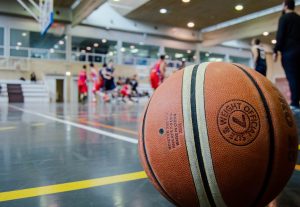For student athletes, back to school means back to practices, tryouts, and games. It can also mean an increased risk of head injuries, soft tissue injuries, fractures, and other sports injuries.
If you have a student heading back to classes and back to a school or private sports program, here’s what you need to know to keep them safer:
- Understand the programs and coaches: Review any materials you’ve been given by the school or the program. What safety policies are in place? Has the sports program had injuries in recent years? Who are the coaches and what are their qualifications? What is the concussion protocol for practises and games? Reputable programs and schools are happy to share this information. If it’s not available on the website, ask.
- Ease back into it: If your child has not been keeping up practice and activity during the off-season, or if they have reduced activity, they need to build up strength, agility, and balance. Moving from inactivity to a high level of workouts can increase the risk of injury. You may want to speak to your child’s pediatrician about healthy and safe ways to get back into condition.
- Review your equipment: Whether you are supplying safety gear or the school is, make sure your child has the right sports equipment. Depending on the sport, this may mean shoes, mouthguards, helmets, and other safety and sports equipment. Visually inspect each item to make sure it seems in good condition and check online to make sure it has not been recalled.
- Keep your student athlete practicing at their level: Trying to work out or play at a too-advanced level may increase your child’s risk of injury. Your child may not have the skills or physical strength to handle advanced play or games. Make sure your child is signed up for the right athletic program for their age and skill level.
Who Is Liable for My Child’s Injury?
Your child’s school has an obligation to take reasonable steps to keep students safe. If your child takes part in a private league or recreation center athletic program, that organization has the same duty of care. Depending on the sport and athletes involved, organizations may be expected to:
- Hire qualified and experienced coaches
- Run background checks on coaches and other staff
- Provide adequate equipment and safe areas for practice and games
- Instruct athletes on safety
- Teach athletes the skills they need to play the sport safely
- Avoid pushing athletes beyond their abilities
- Sit out injured players until they are safe to return to practice and play
- Have written policies on injuries and player safety and share this information with parents and athletes
- Follow best practices for the sport and for injury prevention and management
If an organization is negligent and your child is injured as a result, phone Flaxman Law Group at 866-352-9626 or contact us online to speak to a sports injury claims attorney. Our team has more than 60 years of experience and we can help you understand whether you may have a claim and may be eligible for compensation. With information from a free, no obligation consultation with Flaxman Law Group, you can make decisions about the best options for your child.
 Florida Injury Lawyer Blog
Florida Injury Lawyer Blog


